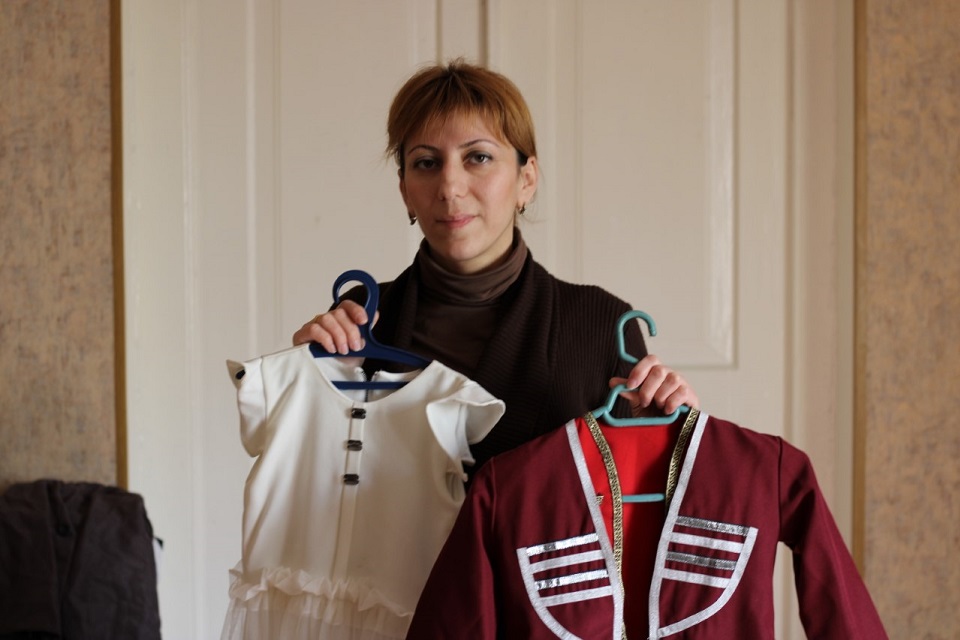Women entrepreneurs learn new ways to cope with COVID-19 pandemic
Date:

The mother of four young children, 37-year-old Anna Kilosanidze lives in the village of Kartubani in Kakheti region, where she makes different handmade accessories and festive outfits for children. This activity is a significant part of her family income, though COVID-19 turned out to be greatly damaging to her business.
Anna explains her situation: “I think you can imagine how difficult it is for a mother of four young children to take care of little children confined to the house, settle housekeeping problems and, at the same time, find time for handicrafts. Unfortunately, the problem is not just how to run the household. School life has come to a standstill, none of the public events are held any more and so, nobody needs the outfits, accessories or little souvenirs I produce.”
COVID-19 has put a lot of businesswomen in a very difficult position, forcing them to face unforeseen challenges. Anna and other women like her - those who have developed their businesses thanks to UN Women - are experiencing a very hard time now, as they have had to search for and find novel ways to cope with the problem and make new decisions. For this reason, one of the main goals of UN Women has become supporting businesswomen and working out strategies in order to assist them and make them able to overcome the crisis. This assistance has been provided primarily by sharing relevant knowledge with the women engaged in small and medium-sized enterprises –among them, Anna.
By the end of May and in early June, UN Women had mobilized to unite the participants of the regional project “Women’s Economic Empowerment in the South Caucasus” - the women who had developed their business activities thanks to the support of this very project - in a series of online trainings so they could share their experiences with one another, thereby enhancing their awareness and skills in these new circumstances. About 125 women participated in the trainings. The main emphasis during these trainings was placed on marketing and branding, on the sustainability of the agricultural economy and on other significant issues necessary to consider in order to overcome the crisis. Anna Kilosanidze says that this knowledge will enable her to prepare herself better for the future while continuing her current production today: “It won’t go on like this all the time, will it? So, I’ll try my best to face it appropriately and not to give up.”
The online trainings were led by specialists in the field from Armenia, Azerbaijan and Georgia as well as by the women who are already successfully running their own businesses. Such knowledge-sharing has turned out to be a strong incentive for 57-year-old Sanuber Pirmamadova, who lives in the village of Bala-Gusar in Azerbaijan. She produces dairy products and sells them in the local shops. “Every training gave me new sources of information,” Sanuber says. “In addition to the new information, I received encouragement. Now I know how to package my products properly. During the quarantine I couldn’t get out of the house, and this restriction brought an end to my business. However, this newly acquired knowledge will be very helpful to me and will enable me to further develop my enterprise.”
These trainings were part of the UN Women regional project “Women’s Economic Empowerment in the South Caucasus”, financed by the Governments of Austria and Switzerland and implemented in partnership with CARE International, Green Lane NGO, UNDP Armenia and UNDP Azerbaijan.